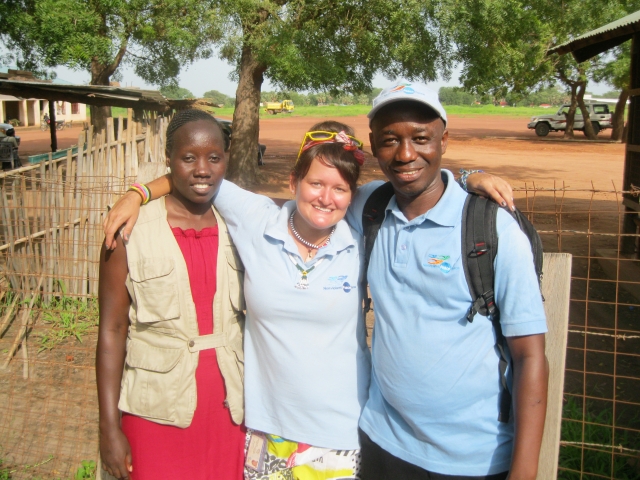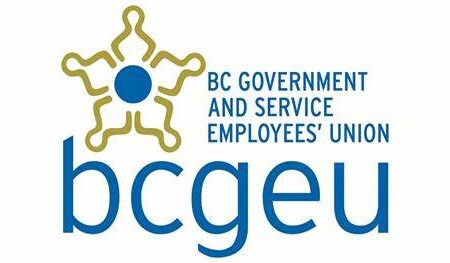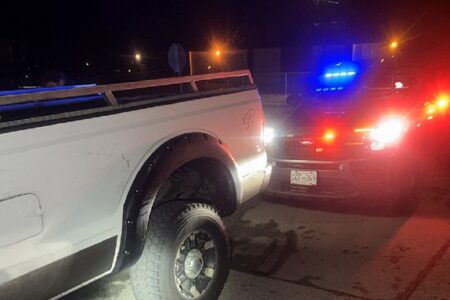Stopping Conflict in South Sudan Though Nonviolence
When Selkirk College Instructor Randy Janzen traveled to South Sudan in June, it wasn’t to report on the looming humanitarian crisis caused by famine and civil war in that country.
On the contrary, the Peace Studies Program instructor wanted to learn more about an exciting project where local and international professionals are organizing together to systematically seek ways to reduce violence in this war-torn country on the brink of famine.
Janzen joined Nonviolent Peaceforce, an international organization that works in conflict areas around the world, to learn more about how this organization works on the ground to reduce violence. Their techniques are based on the model called “unarmed civilian peacekeeping.”
“While military peacekeeping has been shown to be effective in reducing violence, utilizing specially trained unarmed civilians has been shown to be just as effective in reducing violence,” says Janzen.
“Unarmed civilians are able to go even further in building lasting cultures of peace by breaking the cycle of violence so that guns and other arms are not viewed as the only method to bring about justice and peace.”
Spearheading Solutions Comes from the Grassroots
Unarmed civilian peacekeeping fulfills the same role as armed military peacekeepers do: preventing the violence between warring factions by providing a third party presence. Unarmed civilian peacekeeping involves the participation of local grassroots leaders, particularly women, to seek solutions to violence reduction.
“Something happens that is measurably different when you engage with people to reduce violence without weapons,” says Janzen.
“You open space for all members of a community to get involved, not just those who have access to weapons. Power and authority is spread out to include women, youth and civil society organizations.”
South Sudan is located in northeastern Africa and is the continent’s youngest nation having gained independence from Sudan in 2011.
It has suffered internal conflict since its independence with the most recent tensions erupting this past December having killed at least 10,000 people.
While in South Sudan, Janzen traveled with a team of four workers to an isolated village that was being inundated with internally displaced people from a neighbouring province who were trying to escape the civil war and food shortage.
The complication was that the local community and the displaced community were from two rival ethnic groups, potentially creating a volatile situation.
Janzen says the peace team quickly built relationships with both groups and then advocated with United Nations agencies to bring in more food supplies for the displaced people. They asked the local leaders if they could stay to help them ensure the safety of both communities and an invitation was extended from both sides for them to stay.
Quelling Rumours and Ensuring Proper Communication
Currently, Nonviolent Peaceforce has 80 professionals on the ground, half South Sudanese and half from around the world, including countries like Canada, Colombia, Sri Lanka, Kenya and Sierra Leone.
These international teams use specific communication strategies to reduce tension between conflicting parties. Some strategies include protective presencing where teams are placed in communities at risk of being attacked by armed groups.
The groups also conduct a relatively straightforward practice called rumour control where they act as a communication conduit between parties in conflict.
“All too often, violence occurs when one faction misinterprets the action of another faction,” says Janzen, who has taught Peace Studies at Selkirk College for four years.
“Paranoia leads to all kinds of problems. By simply establishing nonpartisan lines of communication, violence has been shown to be reduced.”
Community workshops on nonviolent conflict resolution are also a part of the work of Nonviolent Peaceforce. Participants are always very grateful to learn more about nonviolent strategies, as revenge has become growing aspect of inter-ethnic strife in his country.
One of the workshop facilitators told Janzen that elders are particularly suspicious of young people teaching them information, as wisdom traditionally comes from the elders. One of the elders then went onto say that learning about non-violent strategies “is the most important thing we need to learn.”
Janzen was most inspired by the South Sudanese members of the peacekeeping groups.
“They were very determined to help their brand new country transition into a safe and prosperous democracy,” he says.
“I was told repeatedly by South Sudanese staff members that unarmed civilian peacekeeping was the most important component to creating a culture of peace in their country. They told me to go back home and inform people on the important work the civilian peacekeeping teams are doing.”
Canadians Can Help Make a Difference
Janzen returned to Canada inspired and invigorated to promote the practice among Canadians.
“I think most Canadians do not like the idea of war, yet at the same time we want to help other nations,” he says. “Unarmed civilian peacekeeping is demonstrated to be safe, cost effective, environmentally friendly and it works”
Janzen hopes to use his experience to spearhead collaboration between Selkirk College’s Mir Centre for Peace and some international partners to develop a research project in South Sudan that would measure some of the impacts of unarmed civilian peacekeeping on communities suffering from violence.
“Our goal is to systematically test methods of unarmed civilian peacekeeping to see if they can become viable strategies that can be used more often by countries like Canada, as we respond to violent and humanitarian crises around the world,” says Janzen.
“It’s not enough to say we’re against war. We need to find evidence-based strategies that can replace war. Our long term goal is to create a post-secondary program in unarmed civilian peacekeeping here at Selkirk College.
“The people I worked with in South Sudan say it is necessary to train more professionals. There is a real need and funding has dramatically increased in the past few years, creating a shortage of staff.”



























Comments